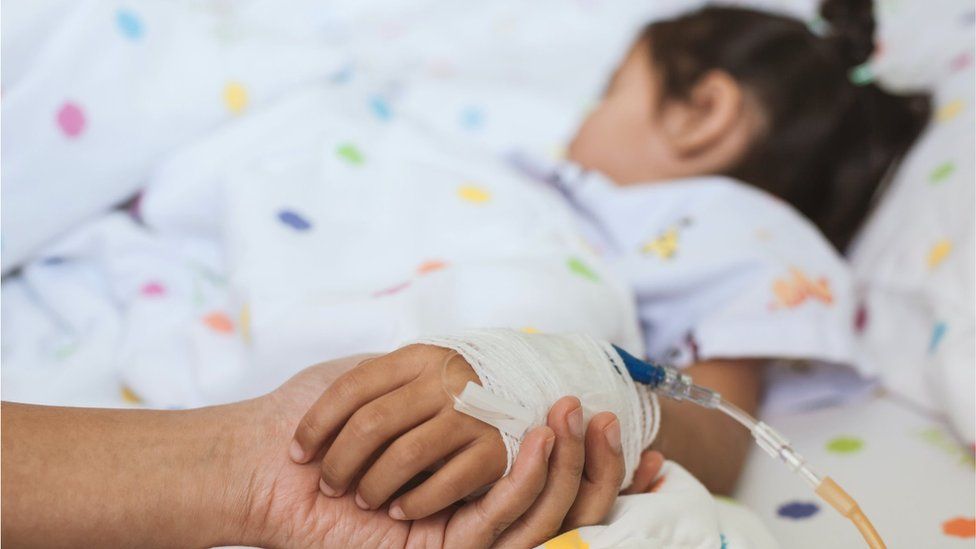ARTICLE AD BOX
 Image source, Getty Images
Image source, Getty Images
By Smitha Mundasad
Health reporter
NHS England is rolling out a national early-warning system to help medics spot and treat a deteriorating child patient quickly - and act on parents' concerns.
Parents and carers are "at the heart of the new system", NHS chiefs say.
Scores for signs such as blood pressure, heart rate and oxygen levels will be tracked on a chart.
But if a parent is worried their child is sicker than the chart suggests, care will be rapidly escalated.
While similar systems already exist in many hospitals, NHS national medical director, Prof Sir Stephen Powis, said staff and patients alike would welcome the introduction of a standardised system across hospitals.
"We know that nobody can spot the signs of a child getting sicker better than their parents, which is why we have ensured that the concerns of families and carers are right at the heart of this new system, with immediate escalation in a child's care if they raise concerns and plans to incorporate the right to a second opinion as the system develops further," he said.
The rollout follows the patient safety commissioner, Dr Henrietta Hughes, recommending that Martha's rule is delivered across England's hospitals, giving patients and families the right to an urgent second opinion and rapid review from a critical care team if they are worried about a patient's condition.
Martha Mills, 13, died in 2021, after failures in treating her sepsis.
With better care, she could have survived, an inquest found.
Her parents have campaigned for the right to a rapid second opinion if families feel their concerns are not being acted on.
Image source, Merope Mills, an editor at the Guardian, has quest
Image caption,Merope Mills is calling for additional patient rights, following her daughter Martha's death in an NHS hospital
Health Minister Maria Caulfield said the new Paediatric Early Warning System - developed over three years with the Royal College of Paediatrics and Child Health and Royal College of Nursing - would "save lives".
"We know from the tragic case of Martha Mills that it's vital to give parents a voice when it comes to the care of their child - and so it will be reassuring to families that as part of this system, parents will be heard," she added.
Standardised paediatric warning systems already exist in Scotland and Northern Ireland.

 1 year ago
32
1 year ago
32








 English (US) ·
English (US) ·